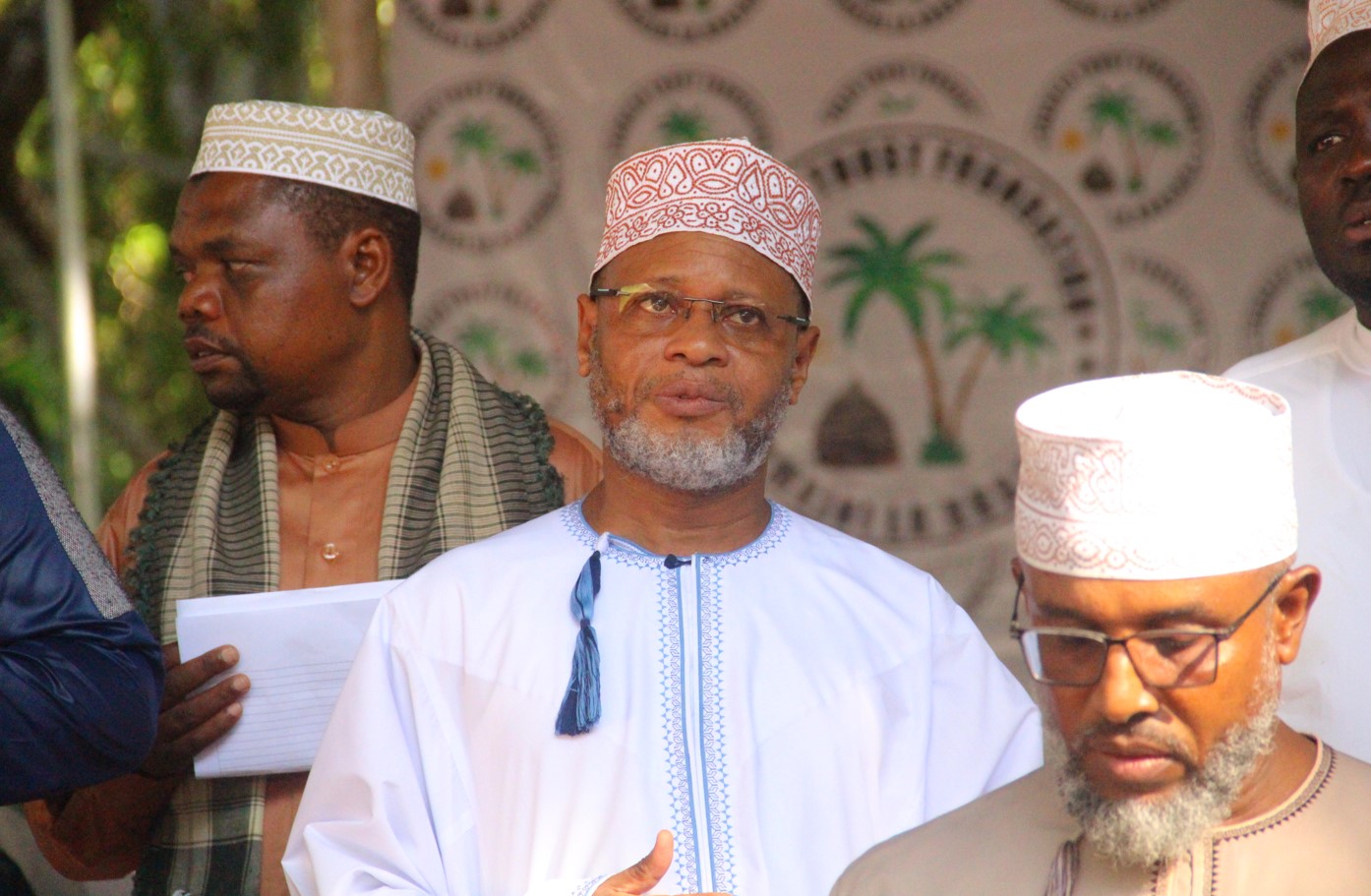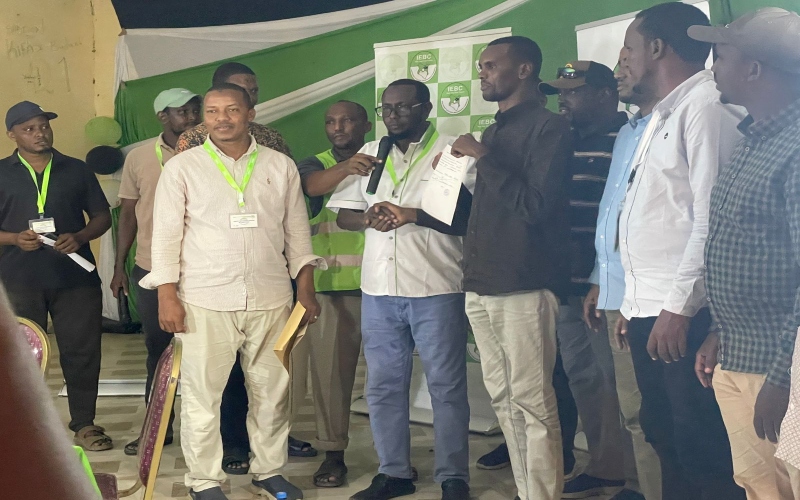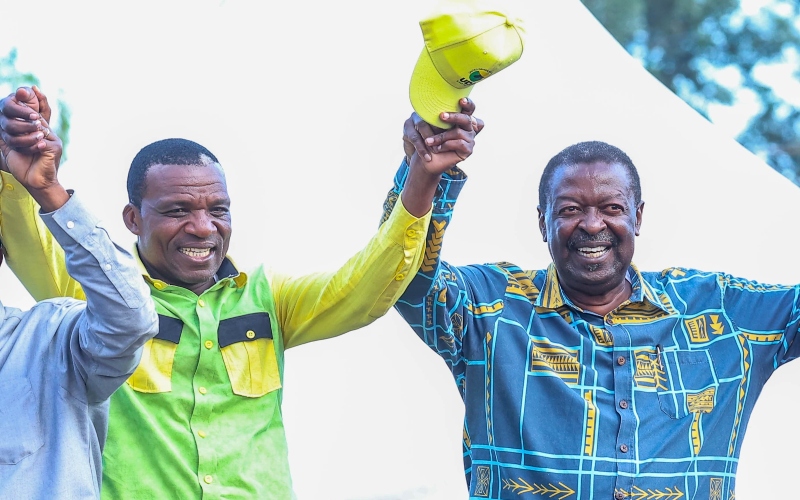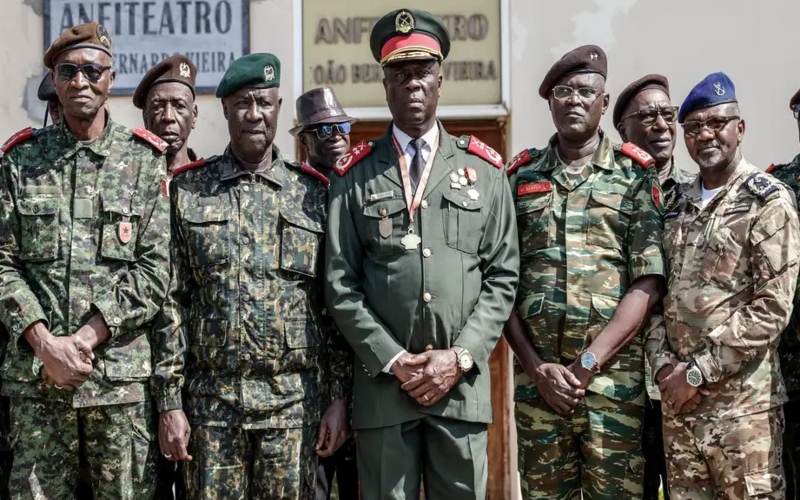Chief Kadhi calls for transparency in management of Waqf resources

The Chief Kadhi noted that the Waqf institution has existed for decades, sustained by the efforts of forefathers, but has faced challenges since 2019 due to the absence of commissioners.
Kenya’s Chief Kadhi, Abdulhalim Hussein, has called for greater transparency and accountability in the management of Waqf resources, urging Muslims to use these religious endowments wisely for the benefit of future generations.
Chief Kadhi Abdulhalim emphasised the unique and sacred role that Waqf plays in Islam, highlighting its enduring value in supporting the community beyond an individual’s lifetime.
More To Read
- JSC shortlists 34 for Resident Kadhi posts, five slots up for grabs
- Nigeria dismisses US claims about prosecution of Christians
- Kenyans unite against Gaza genocide, call for Israel boycott at Uhuru Park protest
- JSC appoints Sukyan Omar Hassan as acting Chief Kadhi
- Inside the appointment process of Kenya’s Chief Kadhi
- Chief Kadhi Sheikh Abdulhalim Hussein buried in Kikowani, Mombasa as nation mourns Islamic leader
“God has given us an institution that is extremely important – a unique one that we are expected to dedicate for our life after death. One of those institutions is Waqf,” he said.
“Muslims must use it to help themselves and their communities even after death,” he added.
The Chief Kadhi noted that the Waqf institution has existed for decades, sustained by the efforts of forefathers, but has faced challenges since 2019 due to the absence of commissioners.
However, he expressed optimism about recent developments.
“We are grateful to the Attorney General, through the guidance of the President, for appointing a panel that will now select commissioners. We hope that these commissioners will carry out the work God loves and ensure that our community benefits.”
He also praised the efforts of young people during the holy month of Ramadan, encouraging them to maintain their discipline, seek employment, embrace innovation, and avoid negative influences.
“Young people are the backbone of our society. We are impressed by your motivation and energy. Keep it up — in work, creativity, and responsibility. To parents, we must guide our children, supervise them at home, and ensure they grow up with values that will help them take on responsibilities,” he said.
Chief Kadhi Abdulhalim further highlighted the critical role his office plays in handling family matters such as marriage, inheritance, and dispute resolution. He observed that many issues stem from inadequate parental guidance.
“Most of the issues we face in families arise because we have failed to give our children proper direction.
Parents must now step up, offer leadership, and ensure that their children are growing up with the right values.”
Despite the renewed focus on reforms in the Waqf sector, concerns have been raised by religious leaders from the Coast region, who say they feel marginalised in the ongoing selection process.
During a press briefing in Mombasa, members of the Pwani Patriotic Religious Leaders (PPRL) expressed dissatisfaction with the composition of the five-member selection panel appointed to nominate candidates for the Waqf Commission, arguing that the Coast region has been unfairly excluded.
“As we all know, 99 per cent of Waqf properties in Kenya are located in the Coast region, particularly in Mombasa and Lamu. How is it that no one from this region was considered for the selection panel?” asked PPRL Chairperson Sheikh Abu Qatada.
He stressed that the region had many qualified Muslim scholars who could have been appointed.
“It is not possible that, in the entire Coast region, we could not find even one suitable representative. Our request is simple: we need at least one or two representatives from this region because this is where most Waqf issues are centred,” he added.
Their concerns follow a gazette notice dated March 28, 2025, in which Attorney General Dorcas Oduor appointed five individuals to the selection panel: Jawahir Keinan Hassan, Al-Hajji Hassan Kirua ole Naado, Sheikh Ibrahim Lethome Asmani, Sheikh Abdala Ibrahim Ateka, and Sumayya Hassan.
Top Stories Today












































